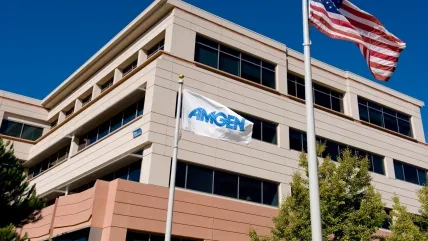
Amgen has received the US Food and Drug Administration (FDA) approval for its Blincyto (blinatumomab) for the treatment of adult and paediatric patients one month or older with certain types of acute lymphoblastic leukaemia.
The approval is for individuals with CD19-positive, Philadelphia chromosome-negative B-cell precursor acute lymphoblastic leukaemia (B-ALL) during the consolidation phase, irrespective of measurable residual disease (MRD) status.
The approval represents Blincyto’s third indication and is primarily based on findings from the Phase 3 E1910 clinical trial.
E1910 evaluated Blincyto in patients undergoing the postinduction consolidation treatment phase of newly diagnosed patients.
The randomised, controlled study was aimed at achieving deep remission and durable responses.
According to the results, the addition of Blincyto to multiphase consolidation chemotherapy significantly improved overall survival (OS) compared to chemotherapy alone.
At three years, OS was 84.8% in the Blincyto plus chemotherapy group versus 69% in the chemotherapy-only group.
The five-year OS was 82.4% in the Blincyto plus chemotherapy arm and 62.5% in the chemotherapy arm.
Amgen chief scientific officer and Research and Development executive vice president Jay Bradner said: “B-ALL is an aggressive blood cancer with enduring high unmet need. BLINCYTO has helped thousands of patients with B-ALL over the last 10 years.
“Today’s approval in the frontline consolidation phase, regardless of MRD status, allows us to reach more patients than ever with this transformative, first-in-class Bispecific T-cell Engager (BiTE) therapy.”
Blincyto is said to be the first globally approved BiTE immuno-oncology therapy targeting CD19 surface antigens on B cells.
The drug already received priority review, breakthrough designation, and orphan drug designation for this indication.
BiTE immuno-oncology therapies are currently under investigation for their potential to treat a diverse range of cancers.
In addition, Amgen’s asset is approved in the US to treat CD19-positive B-ALL in first or second complete remission with MRD ≥0.1% and relapsed or refractory CD19-positive B-ALL in adults and paediatric patients of age one month or above.






